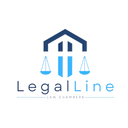
South Sudan's Oil and Gas Law: Key Regulations and Strategic Framework for Growth
- Foreign Investment
Introduction
Since gaining independence in 2011, South Sudan has leveraged its extensive oil reserves to drive economic growth, with the oil and gas sector accounting for over 90% of government revenue. To attract investments, enforce transparency, and promote sustainable industry practices, the South Sudanese government has developed a strategic legal framework that governs the oil and gas sector. This framework sets the foundation for stability, accountability, and responsible resource management.
Core Legislation Governing the Oil and Gas Sector
The Transitional Constitution of South Sudan
As South Sudan's supreme legal authority, the Transitional Constitution establishes government ownership over all mineral resources, including oil reserves. This ensures that oil activities are aligned with the nation's interests and provides a legal foundation for legislating and regulating the sector to benefit South Sudanese citizens.
The Petroleum Act, 2012
This key statute governs upstream petroleum activities and emphasizes responsible and transparent practices. Core provisions include:
- Resource Optimization: Prioritizes efficient recovery techniques that meet global standards to maximize the nation’s oil potential.
- Environmental Protection: Ensures rigorous environmental and safety measures throughout all stages of oil operations.
- Transparency and Ethical Standards: Enforces transparent and ethical practices for both government and industry stakeholders.
- Sector Oversight: The Ministry of Petroleum is designated to oversee and regulate all sector activities.
Petroleum Revenue Management Act, 2013
This act provides a structured framework for managing petroleum revenues, directing funds to address budgetary needs, long-term savings, and stabilization. With strict reporting requirements, this law reinforces transparency and accountability, aiming to safeguard resources for future generations.
Regulatory Framework and Supervisory Bodies
South Sudan's oil sector is regulated by specific bodies and guidelines to ensure compliance:
- Health, Safety, and Environment Systems Regulations (2015)
Contractors are required to implement comprehensive health, safety, and environmental management systems. This includes conducting Environmental and Social Impact Assessments (ESIA) and creating site-specific plans tailored to different stages of the petroleum lifecycle. - Department of Petroleum Authority
This body supervises oil company operations, enforces environmental regulations, issues licenses, and ensures the protection of oil and gas investments in South Sudan.
Government Participation and Investment Models
The government engages in the oil sector through the Nile Petroleum and Gas Corporation Ltd (NilePet), fostering partnerships with international oil companies via varied contractual models:
- Concession Agreements
- Joint Ventures
- Service Contracts
- Production Sharing Contracts (PSCs)
- Sole-Risk Contracts
These arrangements encourage investment, share operational risks, and ensure government revenue from resource development.
Additional Regulatory Agencies
- Ministry of the Environment
Ensures that environmental standards are upheld and promotes sustainability efforts within the oil sector. - South Sudan National Petroleum and Gas Commission
Develops policies and aligns the industry with South Sudan’s national interests and development goals.
Conclusion
South Sudan’s legal framework for the oil and gas sector is designed to enhance transparency, sustainability, and efficient resource management. By adhering to these laws and regulations, South Sudan can maintain a stable and attractive environment for international investment, promoting long-term growth and resource stability in the oil sector.
Share Insight
Continue Reading from Our Legal Knowledge Center
Explore more insights on similar topics to deepen your understanding and stay informed about Legal Line Law Chambers' efforts and initiatives.

Work Permit in South Sudan: Procedures and Requirements
This blog provides a comprehensive guide for employers on how to easily process work permits for their employees in South Sudan. It outlines the step-by-step application process, including necessary documentation, submission procedures, and payment requirements. The blog also highlights key consider...


Legal Consultants in South Sudan
Discover the essential role of legal consultants in South Sudan, guiding businesses and individuals through the complexities of local laws and regulations.


A Guide to Understanding Taxation in South Sudan
Taxation plays a pivotal role in shaping South Sudan’s economic framework, impacting both individuals and businesses operating within the country. A clear understanding of the tax landscape is essential for compliance and financial planning.

